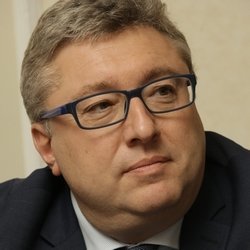Tatkhimpharmpreparaty privatised for half the cost
The details of the deal to buy out 100% of the shares of the major drug manufacturer in Tatarstan by top management have been released
As Realnoe Vremya found out, the flagship of Tatarstan pharmacy, Tatkhimpharmpreparaty JSC, could be sold for 1,85 billion rubles. This is the amount of revenue from the sale of shares of other companies listed in the annual report of Svyazinvestneftekhim JSC for 2020. Although Svyazinvestneftekhim (SINH) does not name whose shares it got rid of, its only public transaction last year was the sale of 100 percent of the company's shares to the top management of Tatkhimpharmpreparaty JSC. The details of the share buyback were also disclosed by Tatkhimpharmparaty JSC itself. Analysts consider the transaction comfortable for the buyer, pointing to the market value of the asset in the range of 3 billion to 3,9 billion rubles. Meanwhile, the participants of the domestic pharmaceutical market included it in the top 5 significant transactions that have a significant impact on the industry.
SINH sold for 1,85 billion rubles
The counterparties of the high-profile pharmaceutical transaction for the sale of 100% of the shares of Tatkhimpharmpreparaty JSC have disclosed the terms of the sale of the Tatarstan pharmaceutical enterprise, simultaneously publishing the accounting statements for 2020.
Svyazinvestneftekhim state holding, which acted as the seller, presented in it the proceeds from the sale of its shares. According to the tabular data, the income from the sale of shares of other organisations amounted to 1,85 billion rubles (listed in the section “income from investment operations”). Whose securities were sold for this amount — SINH does not specify. There is no information about them in the report itself or in the explanatory note to it.
The only way to generate additional income of mysterious origin was to sell the underlying asset of the holding. As it is known, the only major transaction of SINH last year was the sale of 100% of the shares of Tatkhimpharmpreparaty JSC. As reported by the press service of the holding, at the end of August, SINH completed the sale of the state-owned shares of this enterprise, whose nominal value is 311 million rubles (3,116,408 common stocks with a nominal value of 100 rubles). “The sale of shares was carried out to optimise its own investment portfolio and concentrate the resources at the disposal of Svyazinvestneftekhim JSC," SINH said in a statement. The buyer was the top management of Tatkhimpharmpreparaty, which established a “technical” company for special purposes for the transfer of the shares. Thus, Khimtim PLC became the owner of 100% of the shares of Tatkhimpharmpreparaty JSC. The value of the transaction was not disclosed at the time.
It should be noted that the privatisation of the Tatarstan flagship of the pharmaceutical industry took place almost 20 years after its corporatisation in 2003. Gazprombank JSC financed the purchase of 100% of the shares. As reported in the press release of the bank, the borrowed funds were provided to the top management through Khimtim PLC. “The transaction was concluded to create investment conditions for improving the efficiency of one of the manufacturers of medicines in Russia," Gazprombank said in a statement.
Under the guarantee of Tathimpharmpreparaty JSC — 1,387 billion rubles
Tatkhimpharmpreparaty disclosed some details of the transaction in the explanatory note to the financial statements for 2020. It follows from it that Tathimpharmpreparaty JSC provided the future buyer, Khimtim PLC, an interest-free loan for 120 million rubles. Apparently, it served as the basis for the company to be able to apply to Gazprombank for the necessary loan. Following this, Khimtim signed a loan agreement for the amount of 1,378 billion rubles under the guarantee of Tathimpharmpreparaty.
“The guarantee agreement No. 4720-015/P as of 28 July, 2020, was concluded with GPB Bank for the fulfillment of its obligations arising from the agreement on the opening of a credit line with a limit of issuance of no more than 1,387 billion rubles," the document says.
However, other essential conditions remained unknown — the interest rate and the repayment period of the loan. It should be noted that the loan deal was concluded on July 28, 2020, and on the same day, 100% of the shares of Tatkhimpharmpreparaty were transferred to the ownership of Timur Khannanov's Khimtim PLC. On the same day, the powers of the members of the company's board of directors representing the interests of the state were terminated. They withdrew from the management bodies of the enterprise.
Thus, the credit resources of Gazprombank paid for about 2/3 of the company's value. To secure the loan, the plant's property was pledged for 554 million rubles. It is possible that the other third was paid with its own funds or loans from other banks, which are not reflected in the report, since they are not large transactions of essential value. Realnoe Vremya sent requests to the counterparties regarding the parameters of the transaction, but at the time of publication no response was received.
“Don't even check the figures — net profit of 700 million rubles”
Meanwhile, Tatkhimpharmpreparaty JSC for the first time in several years has showed excellent financial performance. According to the reports, revenue increased almost 1,5 times — up to 4,5 billion rubles, and net profit — up to 800 million rubles.
Prior to this, revenue and profits did not rise much, but it is clear that the explosive growth is associated with increased demand during the pandemic, when the population increased the purchase of medicines and medical devices. As the ex-top manager of the large foreign pharmaceutical holding noted in a conversation with Realnoe Vremya, the year 2020 was an exceptional year for all manufacturers who previously “suffered” from low margins with multi-billion-dollar revenue.
“It is a good deal for Khannanov," the interlocutor of Realnoe Vremya shared his impressions.
According to him, the standard scheme of repurchase at the expense of a loan secured by shares of the enterprise was used here. According to SPARK-Intefax, 75% of the shares of Khimtim belong to the CEO and beneficiary, Timur Khannanov. Another 5% of the shares went to five members of his team: Alexander Anisimov, the deputy director for development at Tatkhimpharmpreparaty, Eduard Galiev, the director for inventory and logistics management, Vladislav Lavrukhin, the director for logistics, and Eduard Topleninov, the deputy director for economics. 100% of the shares are under encumbrance. Analysts agree that the deal is comfortable for the buyer, and the price was below the market.

At the stage of large-scale investment projects
Currently, Tatkhimpharmpreparaty JSC is a high-tech pharmaceutical production complex. It has two modern plants: a chemical and pharmaceutical plant and a plant of suture and surgical materials. The product portfolio of the company includes more than 130 items of ready-made medicines in the form of tablets, tinctures, ointments, syrups, solutions and pastes of 30 pharmacological groups: cardiovascular, antibiotics, anti-inflammatory, antiviral, analgesics, antimicrobial, neuroleptics, tranquilizers, antitumor, anti-migraine, sedatives, agents that regulate metabolic processes.
“Now the company is at the stage of large-scale investment projects to create a high-tech production base within the framework of the state strategy for the development of the pharmaceutical industry until 2030," the company told Realnoe Vremya. “A tablet production facility designed and built in accordance with the EU GMP requirements has been put into operation. A project has been implemented to create a new production of eye sterile dosage forms and external ointments and gels with a capacity of 20 million packages a year. Tatkhimpharmpreparaty JSC produces medicines for the treatment of various diseases, including the treatment of viral infections, as well as to eliminate their symptoms. During the COVID-19 coronavirus pandemic, the company increased the volume of production of these groups of drugs and is operating at the peak of production capacity.
In the top 5 major pharmaceutical companies in Russia
The deal has not gone unnoticed in the Russian pharmaceutical market. It is believed that the largest five deals last year were the five deals. This is the deal between Sberbank and R-Pharm Group to acquire 90% of the shares of Eaptek, Kvadrat-S bought the assets of Novosibkhimpharm with the subsequent sale of 50% to Zeldis-Pharm, Gazprombank acquired a share in the capital of ASNA, R-Pharm — the Teva pharmaceutical plant, and here the purchase of Tatkhimpharmparaty JSC. They have been included in the shortlist of the all-Russian competition of market professionals, which has been held in the industry for more than 20 years.
“The acquisition of Tatkhimpharmparaty JSC has been included in the top 5 major transactions in the Russian pharmaceutical market," Alexandra Tokunova, the representative of the Russian Platinum Ounce competition, told Realnoe Vremya.
According to her, every year more than 500 experts send recommendations to the organising committee on major transactions, which are rated during a secret competitive vote. “The purity of the voting results is ensured by the international audit company Ernst&Young," she said. The main criterion for the significance of a transaction is not the cost, but the impact on the balance of forces in the market.
“Speaking about the deal with Tatkhimpharm, it can be noted that the presence of private capital stimulates the market course of the company. This transaction shows that the company has the potential for development, if only because money is invested in it. On the other hand, the market does not know all the details of the transaction. It is possible that the acquisition by management is just a reallocation of resources. Another question — why did you sit in ambush for so long?" the experts from the competition jury wonder.
Sberbank and Gazprombank went to electronic pharmacies
According to them, the most interesting deals are related to new types of retail trade. “There is an obvious entry of Sberbank's large capital into electronic retail. This changes the balance of power in this segment, but it does not change the ratio of traditional chain retail," the jury members say. The transaction of Gazprombank, which entered into the capital of the large integrator, has the same character. It will somehow change the balance of forces within these integrators. It is clear that the availability of free financial resources will make it possible to develop more dynamically.
The third type of transaction is R-Pharm and Teva. This is an interesting fact in itself, because a fast-growing Russian company has acquired the production assets of the large structure, the interlocutors of the publication note. But this deal has positive and negative sides: “Unfortunately, the large foreign structure no longer needs to built production assets in Russia, which carries a negative connotation. But the positive one is that a good chunk of it becomes the property of a domestic company.”
Head of the Association of Russian Pharmaceutical Manufacturers (ARFP) Viktor Dmitriev believes that large bank capital is showing interest in pharmacy:
